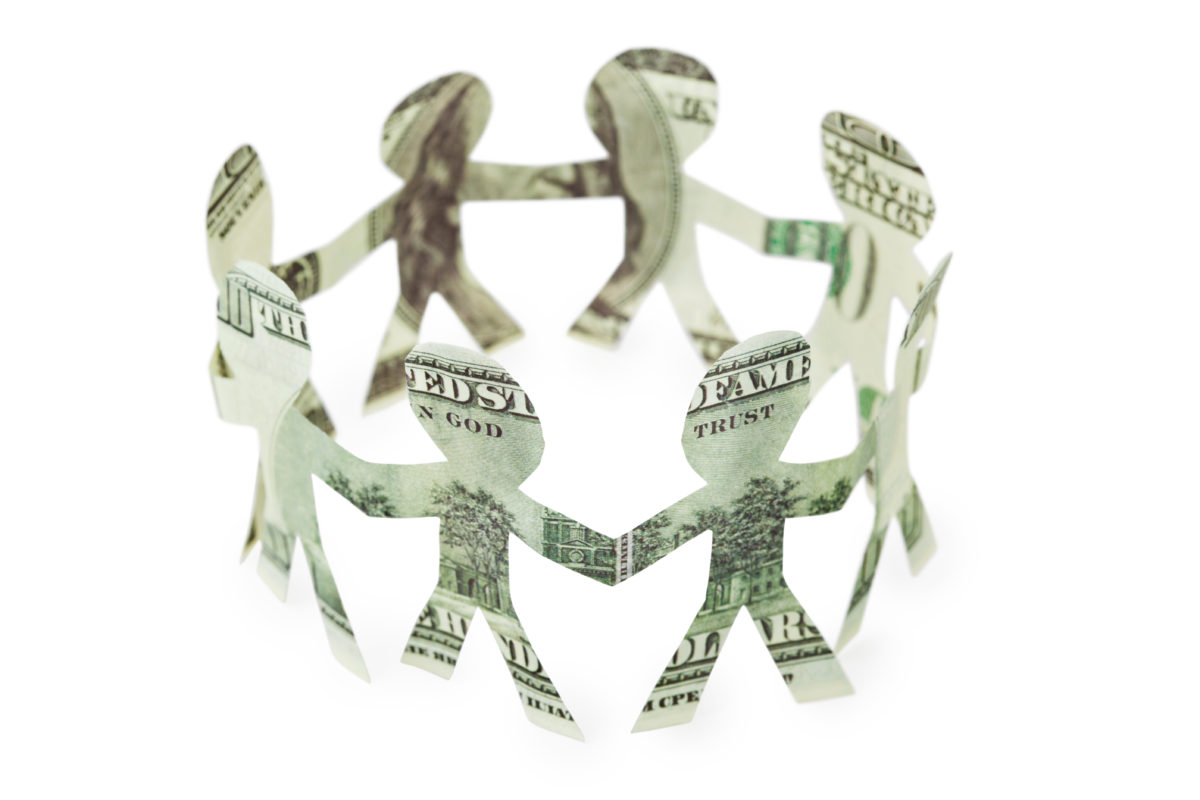Credit unions are member-owned, not-for-profit financial institutions that provide many of the same financial services that banks do, including checking and savings, loans, credit cards and ATMs. However, they are uniquely different from for-profit institutions, in that they exist to help members afford life rather than to funnel profits to shareholders. As such, credit unions offer special advantages:
- Member ownership – Each member of a credit union is a part owner of that credit union and is entitled to one vote at the annual meeting, regardless of how much money he or she has deposited in the credit union.
 Members come first – Because credit unions are not-for-profit cooperatives, they are usually able to offer lower loan rates, higher savings rates and lower fees than for-profit institutions.
Members come first – Because credit unions are not-for-profit cooperatives, they are usually able to offer lower loan rates, higher savings rates and lower fees than for-profit institutions.- Special services – Credit unions serve their members and can offer special services that for-profit institutions may not always offer. Examples include small denomination signature loans under $1,000
to help members through financial difficulties, second-chance or credit rebuilding loans, savings clubs for kids and seniors and financial counseling. - Volunteer leadership – Credit unions are led by a board of directors elected from the membership at the annual meeting. Board members volunteer their time and service and are not compensated.
Credit unions exist to promote the economic well-being of all people, including those with middle class aspirations, through a system which is cooperative, member-owned, volunteer-directed, not-for-profit and therefore tax-exempt; to provide a secure financial alternative for all consumers, and to provide financial and related products and services to members.
Types of Credit Unions
Credit unions are either federally or state chartered. Credit unions vary greatly in size, structure and services. Small credit unions may offer basic savings and loans. Larger credit unions may offer checking, credit and debit cards, ATM cards, IRAs and certificates of deposit, and may have several branch locations. There are three types of credit unions:
- Single common bond credit unions (occupation and associational) such as Savannah Schools FCU in Savannah or Georgia Florida Connectional FCU in Atlanta.
- Multiple common bond credit unions (more than one group each having a common bond of occupation or association) such as Associated CU in Atlanta or Kinetic FCU in Columbus.
- Community credit unions serve residents of a particular area or community such as CSRA FCU in Augusta or Coosa Valley FCU in Rome.
Global Cooperative Principles of Credit Unions
- Members, Not Just Customers – By joining a credit union, people become member/owners. Members expect more value and deserve more respect than is availab
 le in the typical customer interaction at non-cooperative financial institutions.
le in the typical customer interaction at non-cooperative financial institutions. - Democratic Control – Members have equal influence in the voting process and equal opportunity to run for election to the board. One member, one vote. Once elected, directors have fiduciary responsibility to all members.
- Service Differentiates – Democratic control provides a decision-making environment that elevates creating value for the members above profit accumulation at the credit union. It is the dedication to providing service that differentiates credit unions from for-profit suppliers.
- “Profits” Belong to the Members – In order to grow and provide new services, credit unions generate capital by retaining a portion of earnings. These retained earnings are used for the betterment of the entire membership.

